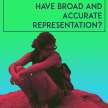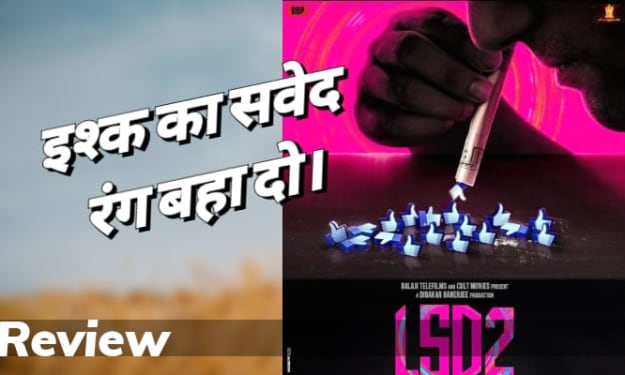Is 'Kingsman: The Golden Circle' Stepping Back Into Cliche?
With a first installment that left behind many spy film tropes, is the sequel a return to the movies it denounced?

The year is 2015 and I want a break from school and readings. There's this movie, Kingsman, that I want to see because First Class is one of my favourites ever and Kick-Ass is good too so I'm at least expecting something entertaining from the Matthew Vaughn team.
I WAS NOT EXPECTING THE HIGH-ENERGY, FUNNY, BRUTAL, OCCASIONALLY SWEET, WILD RIDE that is Kingsman: The Secret Service. I still think it is a tremendous movie, on several levels. And it was the kind of movie that made me wanna tell everyone to go watch it. “THIS IS A CINEMATIC TREAT, GO ENJOY!”
Part of the reason this movie made me so goddamn excited is that it challenged so many spy movie cliches. Harry Hart in particular surprised me because he was masculine and a super great agent yet he wasn’t a sexist, womanizing, boring spy. Eggsy was sweet and cared about others, Roxy was at the same level as any of the men around her, she helped save the world! Gazelle was so cool and had knife feet. The villain was motivated by climate change and, in his own sickened way, saving the planet.
The movie had so many cool, new, and exciting things yet The Golden Circle left me feeling like the franchise had regressed in some aspects that made me fall in love with the first installment.
So this article isn’t going to focus so much on an overall review but it will be more of an analysis of values and attitudes given in The Golden Circle. Because honestly, in terms of technology in terms of choreography, in terms of visuals this movie was absolutely beautiful, stunning, exciting and gripping and it hurts all the more that a movie this well-made fell short on other aspects to the point that I was just sad by the time it ended.
Heteronormativity
Let me start with this.
Heteronormativity is the idea (ideology) that gender is binary (one can only be a man OR a woman [whatever those terms mean according to your society]) and that the only or “normal” sexual relations are between men and women. It proposes that anything outside this view is deviant or out of the ordinary, making it a restrictive ideology indeed.
We can see the dangerous consequences of heteronormativity. It causes marginalization, rejection, and even violence against anyone who does not fit its norms.
My question to Matthew Vaughn and Jane Goldman is: why not challenge this idea with characters in your film?
Any romantic ir sexual relations, even mentions of relationships, we saw on this film were heterosexual ( IF SOMEONE SAYS ‘BUT ELTON JOHN VAGUELY FLIRTED WITH HARRY FOR ONE LINE’ I'LL YELL).
With a plethora of new characters and old characters without an established sexuality it would not have been difficult to establish someone as queer.
And there is no reason I should expect filmmakers to want the same things as me but two things:
- Being in a position where one knows one's work will reach millions it would be wise to carefully consider perpetuation of ideologies that continue to negatively affect people.
- MATTHEW VAUGHN HIMSELF SAID THAT MERLIN WOULD COME OUT AS GAY IF KINGSMAN GOT A SEQUEL
So, what happened? Where did this intention to have a queer character go?
I don’t know, I was not there when this decision was made but my guess is that some people involved with making the film were scared to UPSET STRAIGHT WHITE MEN??
This brings another issue of a concept called “the imagined audience” which is who filmmakers think will see the movie. This audience does not always match the actual audience. For example, neither my friend nor I (who went to see the movie) are straight white men. But the idea that these men are the ones who will go see the film leads to a film catered to (an imagined idea of) what straight white men want to see. This is a constant problem with action films, at least in an Anglo world, the catering to white, hetero men (Grant 2011). I say problem because it is not a reflection of the ones consuming this film. The theatre was not filled with white men, believe you me.
And I'm not making up that this film targeted men. As my friend pointed out, female characters were eerily either killed, barely had screen time, or only existed for romantic/sexual encounters. IS THIS WHAT YOU THINK OF WOMEN, VAUGHN?!
The Secret Service seemed to step out of having only “white” men partaking in the action, with characters like Gazelle, Valentine, and Roxy having tons of agency and being very mobile. This trend almost disappears by the time the second act begins in The Golden Circle.
Eggsy tells Valentine, “This ain’t that kind of movie,” rejecting overdone spy tropes but maybe K2 is that kind of movie. Or at least it’s the kind of movie that begins to take on more of the genre’s cliches.
More talk of new characters in Kingsman and strange regression in The Golden Circle in part 2 of this article.
Cited: Grant, Barry K. Shadows of Doubt: Negotiations of Masculinity in American Genre Films. Detroit: Wayne State University Press, 2011
About the Creator
The Decadent Roomies
We're Lau and Sara Lopez.
Sara- fascinated by the ideologies and values films reflect. Self-proclaimed cinema nerd and anthropology (mostly) student by profession. I love having discussions about film and hypotheticals.






Comments
There are no comments for this story
Be the first to respond and start the conversation.